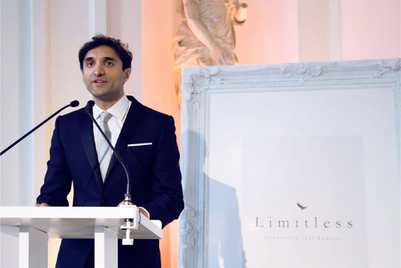
There is a longstanding phrase in motorsports—win on Sunday, sell on Monday. If Mercedes wins a Grand Prix on a Sunday, they’ll sell more road cars on a Monday. Put another way, winning is good for business.
Research repeatedly shows an abnormal correlation between the share price of listed sports teams such as Juventus or Ferrari and their success in prestige events like the Champions League or the Monaco Grand Prix.
That’s hardly surprising, surely? Winning on the global stage brings with it more fame, more fans, better players and, with all this, commercial benefits.
This applies even on a national level. A study by Goldman Sachs showed that every World Cup-winning country since 1974 has seen its stock market outperform the global averages, for at least the next quarter.
So, one might think that it would apply to the advertising industry and winning at Cannes, too. In a piece earlier this week, the editor of Campaign commented that holding companies seek Lions at Cannes because they provide "meaty headlines for their hungry investors".
Of course, lots of different variables affect stock prices, but surely winning "the big one" should be a tide that raises all boats, for a few weeks at least? More client interest, more staff pride and confidence, more talent wishing to join, more existing clients wanting their own Lions next year… this is the stuff that drives our industry forwards – and yet the City doesn’t seem to see that. It was the same last year, when the winners again saw no meaningful benefit on Wall Street.
Now, I accept that unlike a football team winning the Champions League, there’s less immediate and direct upsides to a win at Cannes. Instant sales are harder to generate for a holding company than in the Real Madrid shirt shop. But stock prices are based on future earnings, not just short-term spikes, and I am convinced that a big win at Cannes enhances that future potential.
When we were at Adam & Eve/DDB, we won global agency of the year twice at Cannes. Did the phone ring off the hook with new-business calls the next day? No, it didn’t. In fact, we never traced a single new client directly to those wins. But it absolutely enhanced the fame and reputation of the agency. There’s a reason the Adam & Eve name is spreading further and further across the DDB network. Winning the top prize at Cannes undoubtedly brought a lustre and appeal that over time translated into more opportunities with new and existing clients.
So, it seems unusually short-sighted of the City not to see the power of agencies winning big on the world stage.
So, what’s their problem? Well, in the film industry the feeling apparently is that award winners have hit their peak, from which it’s typically downhill after that. But that’s a very odd sentiment. It’s like suggesting that every film poster that says "from the people who brought you Oppenheimer…" is signalling that it will be rubbish, because they already had their big moment. It’s patently nonsense, because we all know great film studios, and great agencies, can do it again and again.
It seems there’s a profound disconnect here and its damaging to the creative industries. Creativity is what separates us from consultants and, for a little while longer, the machines. Creativity is our superpower. Time and again we prove it delivers extraordinary returns in low-growth environments. Creativity is our Nadal, our Hamilton and our Messi. And when creativity is competed for, celebrated and awarded on the grandest global stage, then it should be a sign to investors that something fundamentally good is happening here, regardless of the business’ current fundamentals, on which stock prices are loosely based.
After all, when Lewis Hamilton announced he was joining Ferrari earlier this year, the red car’s share price jumped 10%. The City saw him as the Scuderia’s new creative superpower and his potential to elevate that business in myriad ways over the long term. It’s time they did the same for our multiple world champions.
David Golding is a co-founder of New Commercial Arts.


.jpg&h=334&w=500&q=100&v=20250320&c=1)

.jpg&h=334&w=500&q=100&v=20250320&c=1)

.jpg&h=334&w=500&q=100&v=20250320&c=1)

.jpeg&h=334&w=500&q=100&v=20250320&c=1)


.jpg&h=334&w=500&q=100&v=20250320&c=1)
.png&h=268&w=401&q=100&v=20250320&c=1)
.png&h=268&w=401&q=100&v=20250320&c=1)
.png&h=268&w=401&q=100&v=20250320&c=1)




.jpg&h=268&w=401&q=100&v=20250320&c=1)